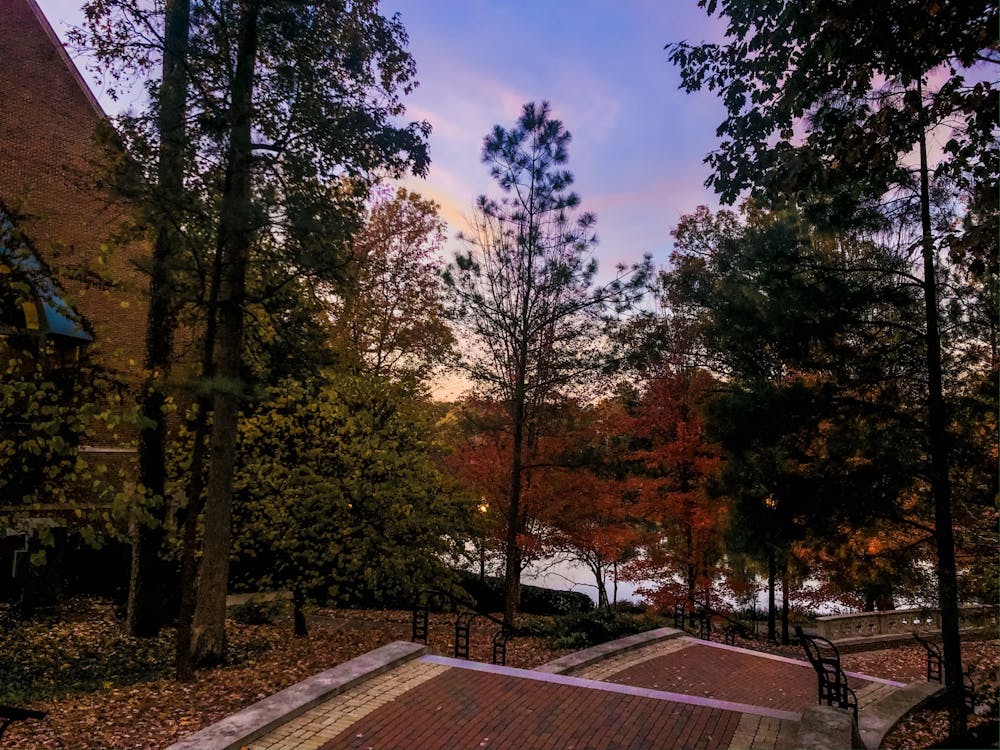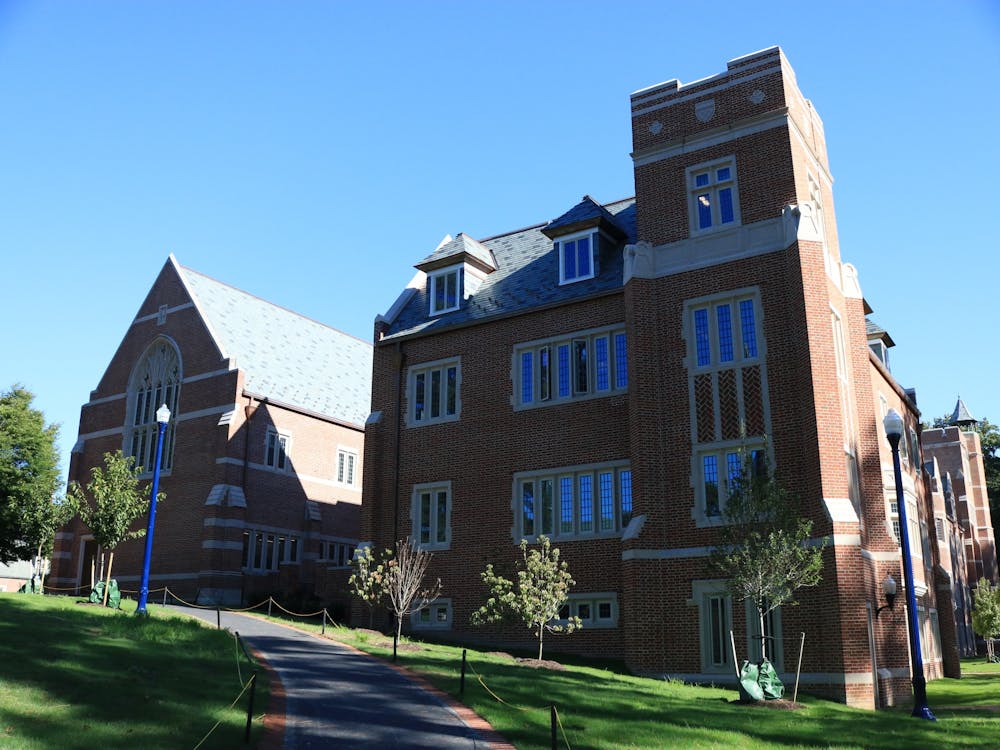President Ronald Crutcher met with students and other members of the University of Richmond administration for his second event about the draft campus freedom of expression statement on a Zoom webinar at 7:30 p.m. on November 10.
The Recommended Statement on Free Expression, a draft version of the possible statement, was released in December 2019, authored by the Task Force on Free Expression. UR is now in the last phase — the Feedback Phase — of the four-phase plan to develop the statement.
Crutcher opened the meeting by emphasizing that the Statement on Free Expression would not be a UR policy, but instead a living document meant to reflect UR’s community values and aspirations. He also laid out his two goals for the event: 1) to provide background on the multi-year effort it had taken the free expression task force to arrive at this moment and 2) to discuss why he believed a free expression statement would benefit the UR community.
Richmond College Student Government Association and Westhampton College Government Association members, members of the UR administration and students attended the Tuesday event, during which attendees discussed the drafted free expression statement that UR’s administration plans to share in the near future.
“After carefully studying the issues over seven months and listening to feedback from students, faculty and staff, the task force determined the university would benefit from having a statement rooted in our educational mission and institutional values,” Crutcher said in his opening remarks. “Tonight, we hope to continue the process of enlivening the recommended statement so that in its final form it feels representative of our diverse community.”
Crutcher then discussed why a statement on free expression would benefit UR.
First, as an academic institution, UR is supposed to prepare students to use their creative expression in the outside world when faced with disputes or disagreements, Crutcher said. Second, students’ should learn how to have conversations across racial, cultural and ideological differences while at UR, he said. The diversity found on campus will likely challenge students' ideologies and expose them to varying opinions, something that may be difficult upon leaving UR, Crutcher said.
After Crutcher’s opening remarks, students were put in Zoom breakout rooms to discuss their opinions on the drafted statement. In each breakout room, an RCSGA or WCGA representative served as a moderator and took notes to share with the entire group after the breakout sessions ended. Concerns raised included the use of vague language in the statement, underrepresentation of vulnerable groups, the need to define hate speech and uncertainty on who will have the power to ultimately decide when speech is unacceptable.
Noella Park, senior and president of WCGA, wrote in an email to The Collegian that the event was beneficial because of the cultivated dialogue and the additional insights gained about concerns with the drafted statement.
“I thought that the event was helpful in raising general awareness of the freedom of expression statement,” Park said. “I think it allowed for the President's Office to gather insight on what concerns students may have in regards to the statement and how students are currently interpreting the statement as. I hope that the administration takes into account each question, suggestion, concern, etc. that students brought forth during yesterday's discussion."
After the 25-minute conversations in breakout rooms, students rejoined the larger meeting and had the opportunity to share their concerns with Crutcher and the other members of the administration. Crutcher asked each moderator to go through the main points that were mentioned in the breakout groups to allow members of the administration to document any concerns about the drafted statement.
“This is a living breathing document,” Crutcher said after hearing some critiques of the draft. “It will be — it has to be updated and it’s not written in stone. It is definitely not a policy; it’s a statement that represents our principles and our values, which may have an impact on policy.”
Enjoy what you're reading?
Signup for our newsletter
Crutcher concluded the meeting by thanking the students and members of the administration who organized the event and informing attendees of UR’s plan for the statement. The next and final meeting in the free expression discussion will take place at 3 p.m. on Nov. 12. The drafted statement is publicly available, and feedback on the draft is accepted until December, when the feedback form closes.
Contact news writer Quinn Humphrey at quinn.humphrey@richmond.edu.
Support independent student media
You can make a tax-deductible donation by clicking the button below, which takes you to our secure PayPal account. The page is set up to receive contributions in whatever amount you designate. We look forward to using the money we raise to further our mission of providing honest and accurate information to students, faculty, staff, alumni and others in the general public.
Donate Now



